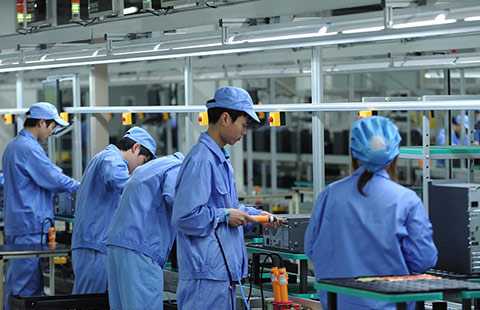Growth target 'can be met' despite lower projections
By Lan Lan and Chen Jia (China Daily) Updated: 2015-09-23 07:34However, the already-rapid growth of infrastructure investment is unlikely to pick up, as viable projects are hard to find after years of strong investment growth, the bank said.
In the first half of the year, consumption contributed 4.2 percentage points to China's 7 percent growth, investment 2.5 percentage points and net exports 0.3 percentage point.
Conrad said structural reforms have "gained traction" in financial and fiscal reforms, deregulation, State-owned enterprise reforms, environmental protection, rural land reforms and urbanization.
Drivers of the Chinese economy include the potential for service growth, urbanization, income growth and private investment, he said.
Zhuang Jian, a senior economist at the ADB, said that in the long run, improving productivity is crucial for China as the country's productivity is only about one-third of that in member countries of the Organisation for Economic Cooperation and Development.
Niny Khor, an economist at the bank, said about two-thirds of workers in China's labor market have not attended high school, so adding investment to the labor force would be important in improving productivity.
- Aging population creates potential in health care
- Delta helps Chinese partners develop business models
- Development remains China's first priority: Xi
- US expects Xi's visit to push forward investment treaty talks
- AIIB aims at common development: Xi
- Local produce, local talent key for store chain
- Reputation for standards, safety is vital
- Aerospace, building giant delivers green, tech-focused products

















